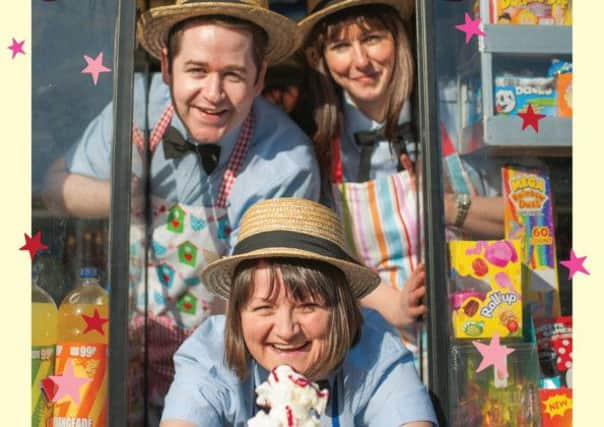Joyce McMillan: Children’s theatre is important


The chimes strike up, three performers in stripey waistcoats and straw boaters start to talk about ice-cream, and the happy times associated with it; and before long, we’re all drawn into The Pokey Hat, the latest show by up-and-coming chldren’s theatre company Grinagog, based in Glasgow, and now on tour across Scotland.
In fact, the audience Grinagog has attracted today contains relatively few young children; there are a dozen cheerful-looking teenagers, and a posse of older ladies from a local care home, hugely appreciative of the show’s gentle way with happy memories. The sheer confidence and poise of the short show, though, makes it a fine piece of entertainment for any audience. And it confirms Grinagog’s increasingly important place in a Scottish children’s theatre scene that has developed by leaps and bounds over the last two decades, under the international influence of Edinburgh’s Imaginate Festival; so that today, Scottish-based companies and artists like Catherine Wheels, Vanishing Point, Wee Stories, Andy Manley and inspired puppet artist Shona Reppe have whole global networks of their own, and back-catalogues of world-class work for children and young people, including Manley and Reppe’s terrific installation piece Huff, which is set to reappear at the Traverse during this year’s Edinburgh Festival Fringe.
Advertisement
Hide AdWith growing confidence, though, comes a whole new set of questions about the status and role of children’s theatre; and this week there were two powerful blasts of the trumpet from south of the border, where children’s companies have been undergoing a similar evolution. David Wood, the veteran adaptor of children’s stories for the stage, told the Guardian that children’s theatre was simply “the most important theatre”, because of its role in stimulating imagination, and its absolute obligation to produce work of the highest quality; there’s no right to fail in children’s theatre, he argues, since one bad show can drive young theatregoers away for ever. And Purni Morell, artistic director of London’s legendary Unicorn Theatre, gave an interview to the website A Younger Theatre, arguing for children’s theatre that is seen as important in its own right, and not as a “training opportunity”; children, she argues, should be entertained and enthralled in the now, and not treated as people who are just preparing to be something else.
And although it’s possible to argue with parts of both statements, it’s thrilling to hear two leading practitioners of children’s theatre begin to challenge some of the patronising and instrumentalising attitudes that often emerge in discussions about the funding of children’s theatre. In his feisty interview, Wood is particularly scathing about the idea that children’s theatre matters because “it builds audiences for the future”, an inward-looking theatre-industry argument that he sees as irrelevant; Morell is clearly exasperated by the idea of children’s theatre as a form of social do-gooding, providing useful education and information for a group who have special needs when it comes to theatrical entertainment.
It’s not true, of course, that children’s theatre is “the most important”; if serious theatre has a close historical connection with the very fact of citizenship, and the complex decisions citizenship entails, then it probably functions most powerfully with audiences who are old enough to take on those adult responsibilities in full. Yet children’s theatre is a vital part of our creative life, and one to which the British - as Purni Morrell forcefully argues - have long had an attitude that ranges from the forgetful to the patronising. And if makers of theatre for children are willing to lead the charge against the reductive idea that theatre should exist mainly as a social service to the young, vulnerable or marginalised, then the vast majority of those who care for the future of theatre in these islands will be backing them, every inch of the way.